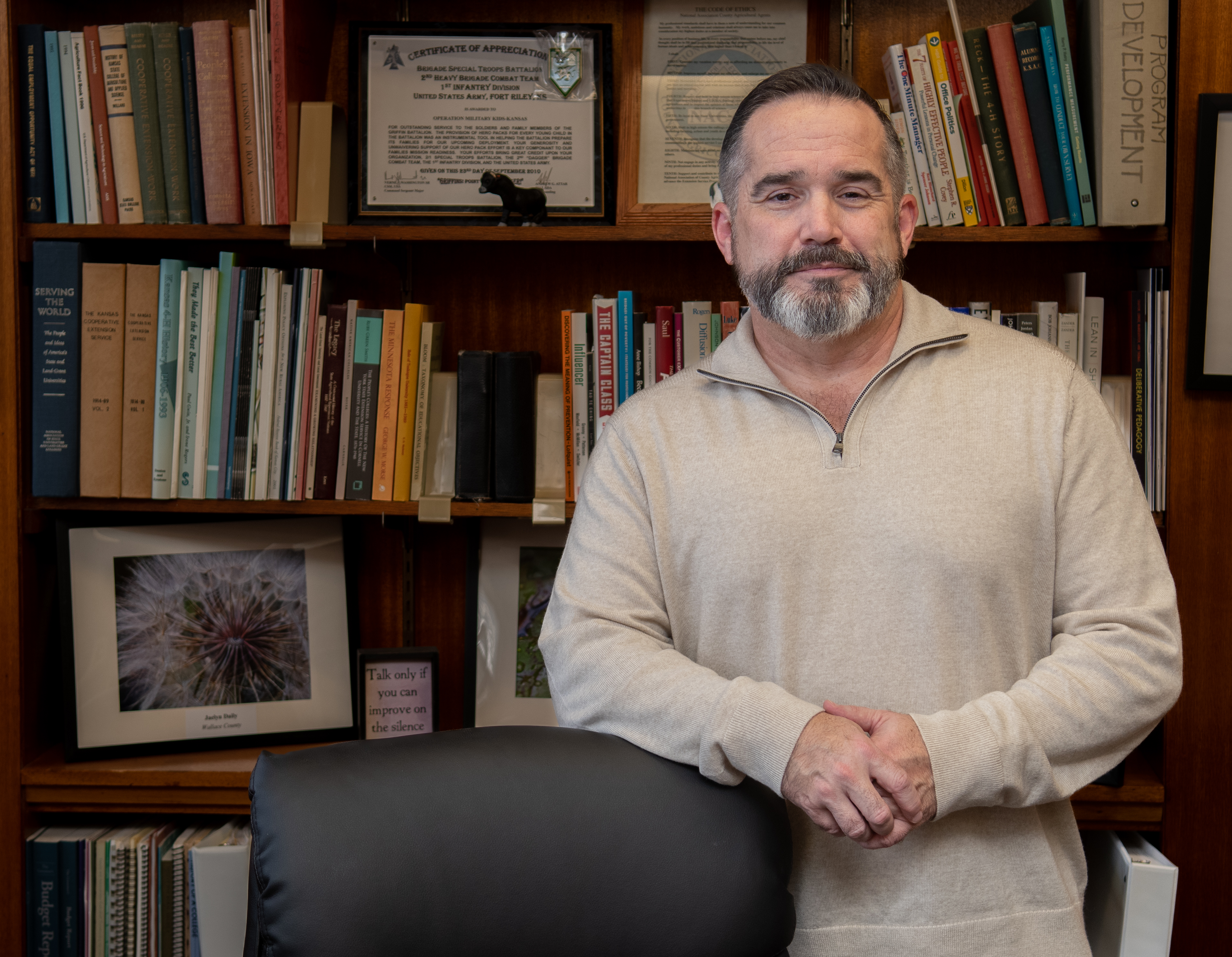April 4, 2023
Modest Extension Professional and Volunteer Syndrome

I am pleased to report we have received three notices of recognition in the past two weeks.
Two recognitions from the National Association for Community Development Extension Professionals (NACDEP) went to the Rural Grocery Initiative for their Rural Grocery Succession Planning Webinar Series and their 2022 National Grocery Summit. Congratulations Rial Carver, Erica Blair and Hannah Jenkins.
I also received word last week that Dr. Elaine Johannes has received the North Central Region’s Excellence in Extension Award. Dr. Johannes will be the North Central Region’s nominee for the National Excellence in Extension Award. Congratulations, Elaine!
Even more amazing is that there are so many recognition-worthy programs, extension professionals, and volunteers in our system. I am reminded of this with each of President Richard Linton’s regional community visits. It is fun to watch the chests of our colleagues, their board members, and the community swell with pride as they present the impact of their coalitions, collaborations, and programs.
One of our university administrators recently suggested that one such program should be held up to serve as a national standard for conducting community-based, health-related policy, systems, and environment (PSE) work.
Why don’t we have more recognition-worthy programs, extension professionals, and volunteers from our system? I believe that many of our extension professionals and volunteers suffer from MEPVS (Modest Extension Professional and Volunteer Syndrome). I probably do as well. MEPVS sufferers do great work, and then do not tell anyone about it. People with MEPVS can be heard saying things like:
• “I don’t want to brag.”
• “There are probably programs (people) more deserving.”
• “I like my work to speak for itself.”
MEPVS can be seen in our system by looking at the number of applications submitted for our recognitions at our annual conference. Very few apply, and some categories receive no applications. I know that many professional association, regional, and national recognition application pools also suffer from MEPVS.
The sad thing about MEPVS is that the extension professional or volunteer doesn’t realize the harm they are causing. When a program, extension professional or volunteer receives recognition, the entire local unit, center, department and system wins. Their stakeholders start to talk about how great our extension programs are. Local, county, state and national elected officials boast about the relevancy of our extension programming.
Do you have a colleague that suffers from MEPVS? Make sure that they communicate their work to their stakeholders, supervisors, boards, program leader coordinators, regional directors, etc. Encourage them to put their programs and themselves out there by applying for recognition. If they don’t, take it upon yourself and nominate them for recognition.
Even doing things like giving them a Shout Out in the Tuesday Letter and posting about their work in Difference Makers can go a long way in combatting MEPVS.
Remember, when someone receives recognition for a job well done, everybody wins. Let's do our part in combatting MEPVS!